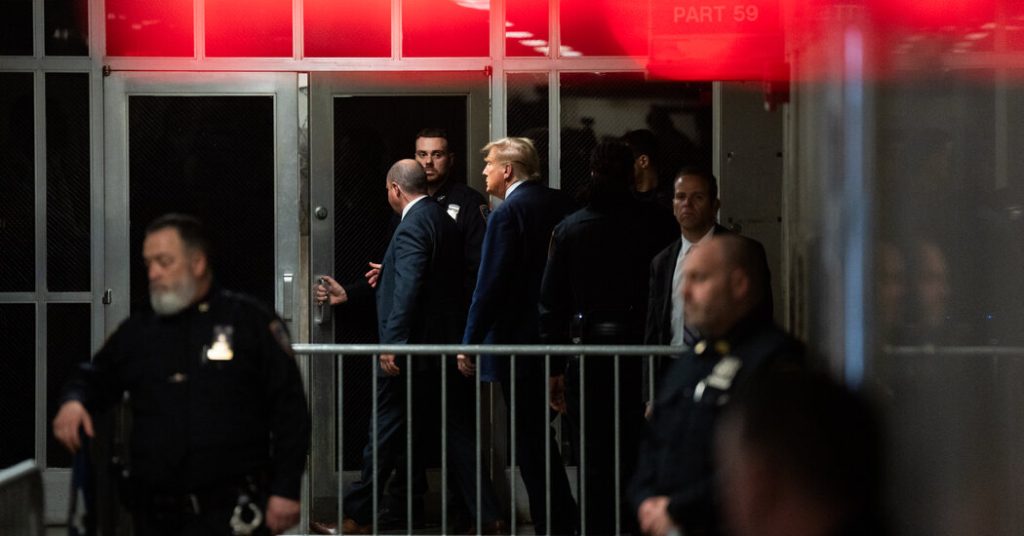Two Manhattan residents were recently brought into the courtroom to be interviewed as potential jurors for the trial of former President Donald J. Trump, a unique defendant in American history. Their experiences shed light on the intense scrutiny surrounding Trump’s trial, the first in which a former U.S. president faces criminal charges. Despite not being selected for the jury, their encounters with the court process were unnerving. The prospective jurors, a man and a woman, shared their frustrations at the attention focused on them and the public disclosure of personal information during the selection process.
The individuals contacted The New York Times after being excused from serving on the jury. They expressed dismay over the amount of personal information they were required to reveal and how it quickly spread on the internet. Although the judge had ordered some details to be redacted, the damage was done. The prospective jurors, like others who were dismissed, felt overwhelmed by the media scrutiny and the weight of serving on such a high-profile case. Despite their initial desire to be part of history, they ultimately felt relieved to have been excused from the trial.
One of the jurors did not realize the case he was involved in until he entered the courtroom, while the other had prior knowledge due to news reports. Both were taken aback by Trump’s behavior in court, noting his demeanor was more akin to a political candidate than a criminal defendant. The man was put off by questions from Trump’s lawyer regarding his past social media posts critical of the former president, ultimately leading to his dismissal. The woman was similarly disconcerted by the lawyer’s efforts to gauge jurors’ biases against Trump.
Both prospective jurors believed in the importance of jury service and had taken oaths to render fair and impartial judgments. They felt their past opinions should not disqualify them from serving on a jury, but recognized the challenges and potential backlash that could arise from being involved in a case against Trump. Despite their initial interest in being part of a historic trial, they were ultimately relieved to not have been selected as jurors, considering the personal risks and threats that could accompany their involvement in the case.
The experiences of these prospective jurors reflect the complexities and pressures involved in selecting a jury for a trial of such significance. The public attention on Trump’s trial, combined with the careful vetting of potential jurors, highlights the unique circumstances surrounding this legal proceeding. While both individuals initially saw serving on the jury as a civic duty, they ultimately grappled with the personal ramifications and challenges of being involved in a case of immense public interest. Their stories underscore the intense scrutiny and ethical considerations that accompany high-profile legal cases.


